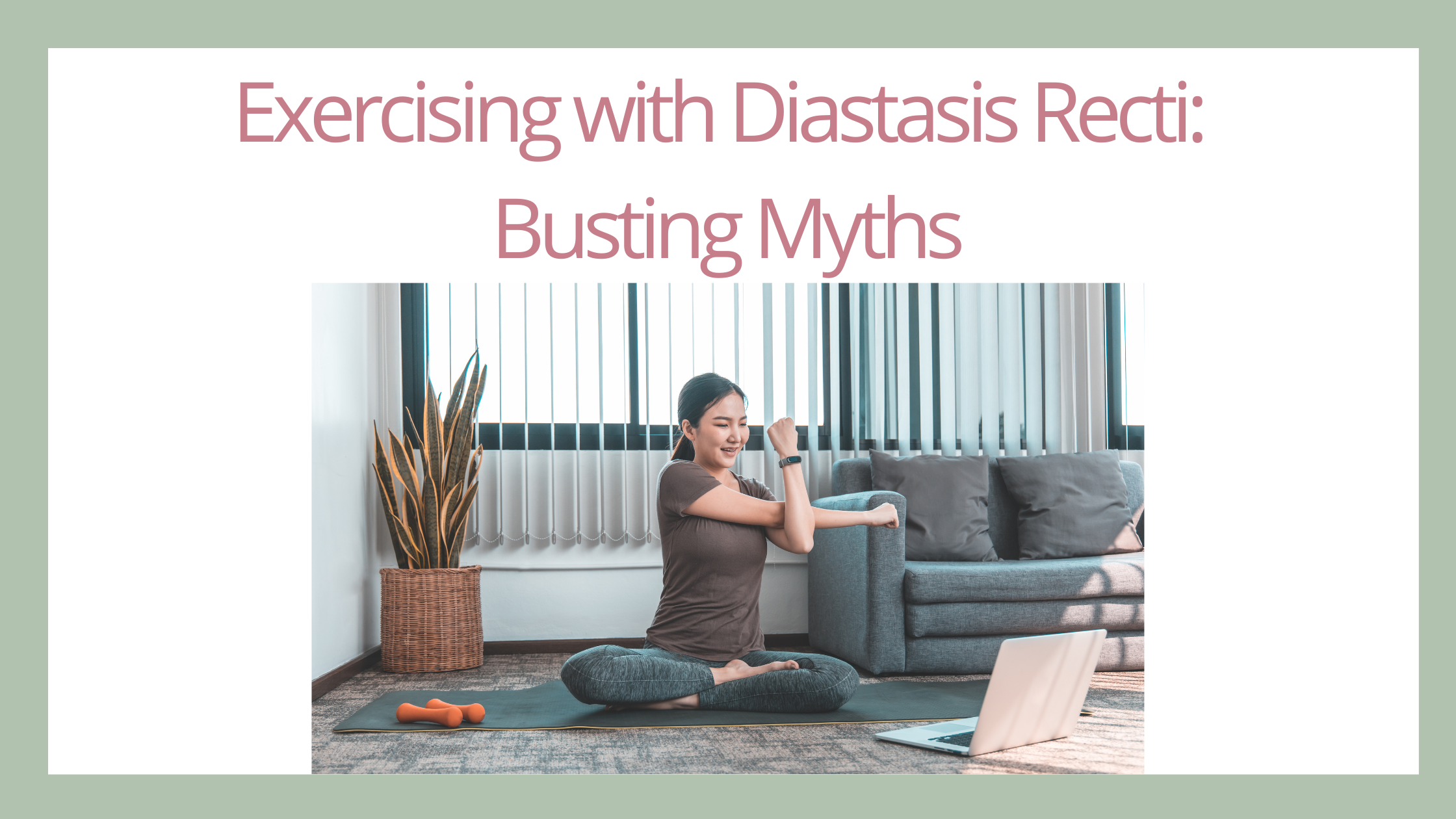Pregnancy is an incredible journey, but it can also bring about a variety of aches and pains, particularly in the hips and lower back. As your body adapts to accommodate a growing baby, structural changes, hormonal shifts, and increased stress on muscles and joints can lead to discomfort.
Two common culprits for hip pain during pregnancy are sciatica and pelvic misalignment, but other factors, such as hormonal changes and muscle strain, can also contribute. In this blog, we’ll explore the differences between these conditions and how they can affect pregnant moms, along with tips from a pelvic PT for pain relief!
Sciatica During Pregnancy: A Nerve-Related Cause of Hip Pain
What is Sciatica?
Sciatica occurs when the sciatic nerve, which runs from the lower back through the hips and down the legs, becomes compressed or irritated. Pregnancy can exacerbate or trigger sciatica due to physical and hormonal changes.
Why Sciatica Happens in Pregnancy
During pregnancy, the following factors can contribute to sciatica:
Weight Gain: The growing baby and uterus place additional pressure on the spine and pelvic region, which may compress the sciatic nerve.
Pelvic Shifts: As the pelvis widens and shifts to prepare for childbirth, changes in alignment can irritate the sciatic nerve.
Hormonal Changes: Increased levels of relaxin, a hormone that loosens ligaments, can lead to joint instability, making the sciatic nerve more vulnerable to compression.
How Sciatica Feels During Pregnancy
Location: Sciatic pain often starts in the lower back or buttocks and radiates down one leg.
Character: Pain can be sharp, burning, or electric, sometimes accompanied by tingling, numbness, or weakness.
Trigger Points: Prolonged sitting, standing, or certain movements may worsen symptoms.
How to Relieve Sciatica During Pregnancy
Prenatal Physical Therapy: Exercises and stretches designed to alleviate nerve compression.
Pelvic Support Belts: These can help stabilize the pelvis and reduce strain on the sciatic nerve.
Postural Adjustments: Practicing good posture when sitting or standing to minimize pressure on the lower back.
Rest and Positioning: Avoid prolonged sitting or standing and sleep on your side with a pregnancy pillow for support.
Hip Pain from Pelvic Misalignment During Pregnancy
What is Pelvic Misalignment?
Pelvic misalignment occurs when the pelvic bones shift out of their normal position. During pregnancy, this can happen due to the loosening effect of relaxin and the additional weight of the baby. Misalignment can lead to uneven stress on the hip joints and surrounding muscles, causing discomfort or pain.
How Pelvic Misalignment Happens in Pregnancy
Relaxin’s Role: This hormone prepares the body for childbirth by relaxing ligaments, which can also make joints less stable.
Postural Changes: As the belly grows, the body’s center of gravity shifts, often leading to changes in gait and alignment.
Muscle Imbalances: Tight or weak muscles in the hips, back, or abdomen can pull the pelvis out of alignment.
How Pelvic Misalignment Causes Hip Pain During Pregnancy
A feeling of imbalance or tightness in one or both hips.
Pain in the groin, buttocks, or thigh, especially when walking, standing, or shifting weight.
A clicking or popping sensation in the pelvis or hips.
Differentiating Pelvic Misalignment from Sciatica
Location: Misalignment pain is often localized to the hip and groin, whereas sciatica radiates down the leg.
Trigger points: Misalignment pain may feel dull, achy, or sharp as trigger point muscle pain, and can change with certain movements.
Activities: Pain may worsen with activities like walking or prolonged standing but is less likely to involve tingling or numbness.
How to Address Pelvic Misalignment During Pregnancy
Prenatal Physical Therapy: Focused on realignment exercises and strengthening weak muscles.
Manual Therapy: Techniques like soft tissue massage or joint mobilization to release tension and improve alignment.
Pelvic Stabilization: Using support belts or braces to reduce joint strain.
Posture and Movement Training: Learning how to move safely and efficiently as your body changes.
Other Common Causes of Hip Pain During Pregnancy
While sciatica and pelvic misalignment are common sources of hip pain in pregnancy, other factors can also contribute:
1. Round Ligament Pain
What it Feels Like:
A sharp, stabbing pain in the groin or lower abdomen.
Pain that comes on suddenly with movement, such as rolling over or standing up.
Cause:
The round ligaments, which support the uterus, stretch as the uterus grows, leading to discomfort.
Relief Tips:
Gentle stretching, prenatal yoga, and avoiding sudden movements can help ease symptoms.
2. Hip Bursitis
What it Feels Like:
A burning or aching pain on the outside of the hip.
Pain that worsens with prolonged activity or lying on the affected side.
Cause:
Inflammation of the bursa (fluid-filled sacs cushioning the hip joints), often due to increased pressure from pregnancy weight.
Relief Tips:
Ice, rest, and sleeping with a cushion between your knees to reduce pressure on the hips.
3. Symphysis Pubis Dysfunction (SPD)
What it Feels Like:
Pain or discomfort in the front of the pelvis, radiating to the hips, thighs, or lower back.
A clicking sensation or feeling of instability in the pelvis.
Cause:
Loosened pelvic ligaments and joint instability caused by pregnancy hormones.
Relief Tips:
Physical therapy, pelvic support belts, and avoiding activities that strain the pelvis (like heavy lifting).
4. Muscle Strains and Tightness
What it Feels Like:
Soreness, tightness, or spasms in the hip, buttock, or thigh muscles.
Pain that worsens with activity or specific movements.
Cause:
The additional weight and altered posture during pregnancy can strain muscles, especially if they are already weak or tight.
Relief Tips:
Gentle stretching, foam rolling, and strengthening exercises tailored for pregnancy.
Getting the Right Diagnosis During Pregnancy
Since many causes of hip pain during pregnancy share similar symptoms, an accurate diagnosis is essential. If you’re dealing with persistent hip pain, consult a pelvic health physical therapist or your healthcare provider. They will:
Assess your posture, gait, and movement patterns.
Identify contributing factors, such as muscle imbalances or joint misalignments.
Recommend safe, pregnancy-appropriate exercises and treatments tailored to your specific needs.
Final Thoughts
Hip pain during pregnancy can stem from a variety of sources, including sciatica, pelvic misalignment, and other structural or hormonal changes. Understanding the root cause of your discomfort is key to finding relief. With the right support, including prenatal physical therapy and lifestyle adjustments, you can manage pain and feel more comfortable as your body supports the incredible work of growing a baby.
If hip pain is affecting your pregnancy journey, don’t hesitate to seek out a perinatal pelvic health physical therapist for professional guidance. The accurate diagnosis and treatment approach will help you move through pregnancy and into birth and postpartum with less discomfort and more confidence!















